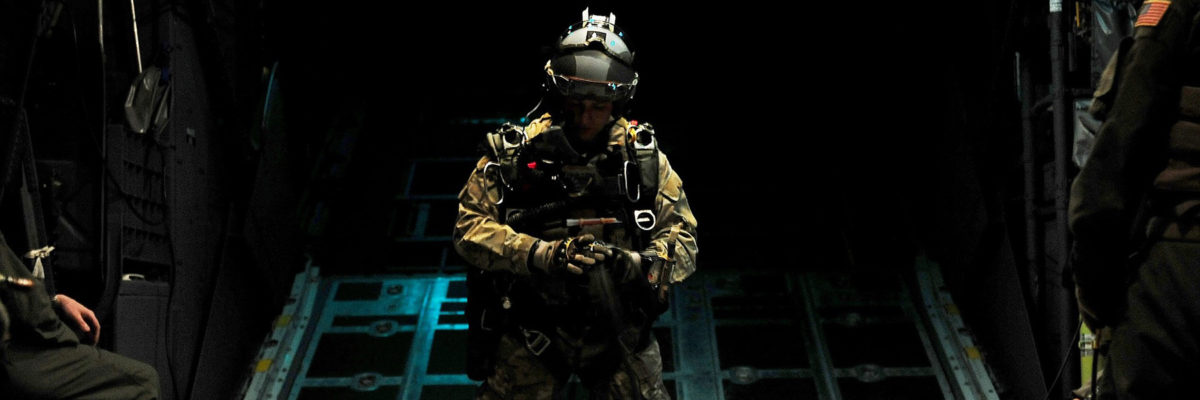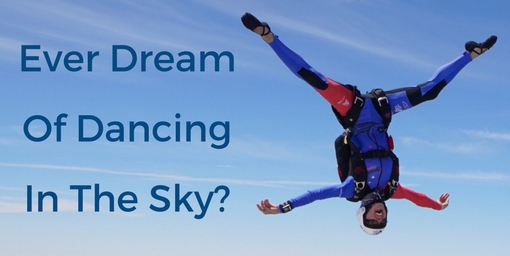
Night Skydiving
Friday, June 21, 2019
- Team FlyXP
- 6/21/19
- 0
- Skydiving
Skydiving at night: it’s not just for military operations to insert soldiers and supplies behind enemy lines. Civilian skydivers can enjoy the thrill of nighttime skydiving too!
What is night time skydiving?
According to the United States Parachute Association, in order to qualify as a “night jump,” a skydive must be made one hour after official sunset to one hour before official sunrise. Though, it need not be completely dark to be considered a night skydive. Regardless of the time its completed, all night skydives require special considerations and special equipment.
Tandem Skydiving At Night
Due to safety concerns, there is nowhere currently in the United States to complete tandem skydiving at night. Skydiving businesses all strive to mitigate risk. Night skydiving is inherently more risky than a day time skydive because of the limited field of vision created by a skydive after dark.
Specific Certifications Needed To Skydive At Night
Not all licensed skydivers can complete skydives at night. Participants will need to possess a USPA “B” license (or higher). Requirements to obtain a B License and subsequently complete a nighttime skydive are as follows: the jumper must have completed a minimum of 50 solo skydives, demonstrated competency landing accurately, presented proficiency in freefall maneuvers, passed a written exam, and provide documentation that s/he has taken a water training course. In addition to possessing the B License, each potential night skydiving candidate must undergo a comprehensive night briefing. The reason: a night jump is a pretty big deal.
Specialized Night Jumping Equipment
Nighttime skydiving, much like any night time activity, requires specific gear to shine a little light and brighten things up a bit!
On a night time skydive, you will need an altimeter with a lighted or phosphorescent face. If you wear an open face helmet and use goggles, they must be clear rather than tinted. Additionally, chem lights (think of them as a glow sticks stronger older brother) will need to be attached to your person.
On a night jump, you will also be given a strobe light to attach to yourself to assist with jumper-to-jumper visibility in freefall and while under your parachute.
Another means of helping jumpers to keep track of one another while under a parachute is to give each individual a whistle. Because of the lack of light, your vision is deadened, though thankfully, when one sense is affected, the others, like hearing, can be utilized.

What about the landing area?
If you’re wondering how one finds the landing area from 14,000 feet if you cannot see it, lean in close. Here’s how it’s handled.
So, before nighttime jump operations, typically, drop zones will make special arrangements to light the landing area. Honestly, it’s not a high-tech solution, rather, it’s an exercise in teamwork. To give the landing area a little light, volunteers will arrange their cars in a line in the landing area with the headlights on. Despite the headlights, it is still challenging to see the landing area from full altitude, and this leads us to our next point.
Is Night Skydiving Scary?
Definitely. Nighttime skydiving gives even experienced jumpers the butterflies. Jumping after dark is completely different than jumping during the day. The usual inputs and senses jumpers have learned to rely on can’t be trusted in the same way at night. Even something as simple as depth perception is greatly altered in the reduced light of night.
Yet, jumpers still choose to participate in nighttime skydiving. Why? Because for skydivers, fear is recognized and respected, but it isn’t a reason to turn and run. Rather, fear is an invitation to rise to a challenge.
What about you, would you like to rise to the challenge and get started on your nighttime skydiving journey with a night jump? If so, or if you have any questions, contact us today!
Copyright © 2025, Skydive Paraclete XP, All Rights Reserved.
DropZone Web Design & Marketing by Beyond Marketing, LLC
